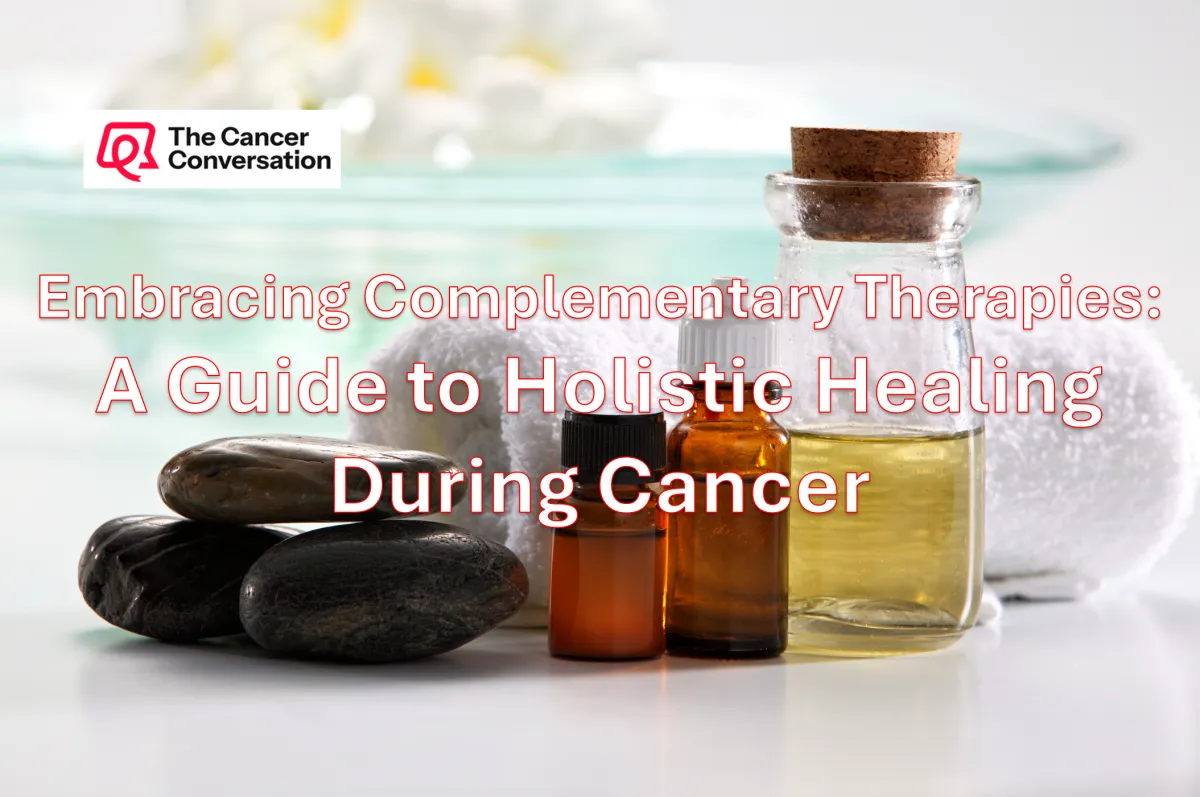
Embracing Complementary Therapies: A Guide to Holistic Healing During Cancer
Facing cancer can feel like a storm that disrupts your life. You're not alone in seeking comfort and healing beyond traditional treatments. Complementary therapies offer a path to holistic cancer care, focusing on mind-body wellness and emotional resilience. In this guide, you'll find insights on integrating these therapies into your healing journey, empowering you to reclaim control over your health. Ready to explore? Learn more about complementary therapies here and discover the power of natural healing.
Understanding Complementary Therapies

Complementary therapies provide a holistic approach to cancer care by working alongside traditional treatments. They focus on the whole person rather than just the disease. Understanding these therapies can empower you and enhance your healing journey.
Benefits of Integrative Treatment
Integrative treatment combines conventional medical practices with complementary therapies. This approach is designed to address not only the physical but also the emotional and spiritual needs of a patient. By blending these elements, patients often report improved quality of life and increased emotional resilience.
Patients may experience fewer side effects from traditional treatments.
Integrative care can lead to better overall health outcomes.
Combining therapies can support mental health and reduce stress.
Research supports these benefits. A study found in PMC highlights how integrative care can bring peace of mind to patients by offering comprehensive support.
Consider discussing integrative options with your healthcare provider to personalize your treatment plan.
Enhancing Mind-Body Wellness
Mind-body wellness is crucial in the journey of healing. Practices like mindfulness, meditation, and yoga help maintain mental health during cancer treatment. These techniques promote relaxation and reduce stress, which is vital for recovery.
Mindfulness helps focus on the present moment, reducing anxiety about the future.
Meditation encourages mental clarity and emotional stability.
Yoga combines physical movement with breath control, enhancing physical strength and mental calmness.
As noted on Better Health, these practices can significantly improve patients' overall well-being. They offer tools to manage the psychological challenges of cancer.
Incorporating these practices into daily routines can foster an environment of healing and resilience.
Key Therapies for Holistic Cancer Care

Holistic cancer care involves a range of therapies that support traditional treatments. Exploring these options can lead to a more comprehensive and personalized approach to healing.
Exploring Natural Healing Options
Natural healing options, such as herbal medicine and acupuncture, are increasingly popular in holistic cancer care. These therapies aim to support the body’s natural healing processes.
Herbal Medicine: Uses plant-based remedies to balance the body.
Acupuncture: Involves inserting thin needles into specific points to alleviate pain and improve energy flow.
A comprehensive guide on complementary therapies can provide more detailed insights into these methods. These natural therapies can be a valuable addition to conventional treatments.
Discussing these options with a qualified healthcare provider ensures they complement your current treatment.
Techniques for Emotional Resilience
Building emotional resilience is crucial for anyone undergoing cancer treatment. Techniques such as counseling, support groups, and journaling can provide significant emotional support.
Counseling: Offers a safe space to express feelings and fears.
Support Groups: Connects you with others who understand your journey.
Journaling: Helps process emotions and reflect on progress.
According to USC's guide, these strategies can enhance emotional well-being and provide a sense of community and understanding.
Consider these techniques to bolster your mental health and build resilience.
Empowering Your Cancer Recovery

Empowerment in cancer recovery is about taking active steps to support your healing. Creating a supportive environment and utilizing available resources can make a meaningful difference.
Creating a Supportive Environment
A supportive environment is key to effective recovery. It involves both a physical space conducive to healing and a network of individuals who provide emotional and practical support.
Ensure your living space is comfortable and stress-free.
Surround yourself with supportive friends and family.
Access community resources for additional support.
In a case study, patients who had a strong support system reported higher levels of satisfaction and better outcomes. This highlights the importance of a nurturing environment.
Reach out to local support groups and utilize community resources to create a robust support network.
Reclaiming Health Through Cancer Support
Cancer support services can offer comprehensive assistance on your journey to recovery. They provide access to resources, education, and emotional support.
Education: Learn about your condition and treatment options.
Resources: Find financial assistance and practical help.
Emotional Support: Access counseling and therapy services.
Better Health's resources emphasize the importance of using cancer support services for a well-rounded recovery approach.
Engage with local support services to reclaim control over your health and recovery. 👐








